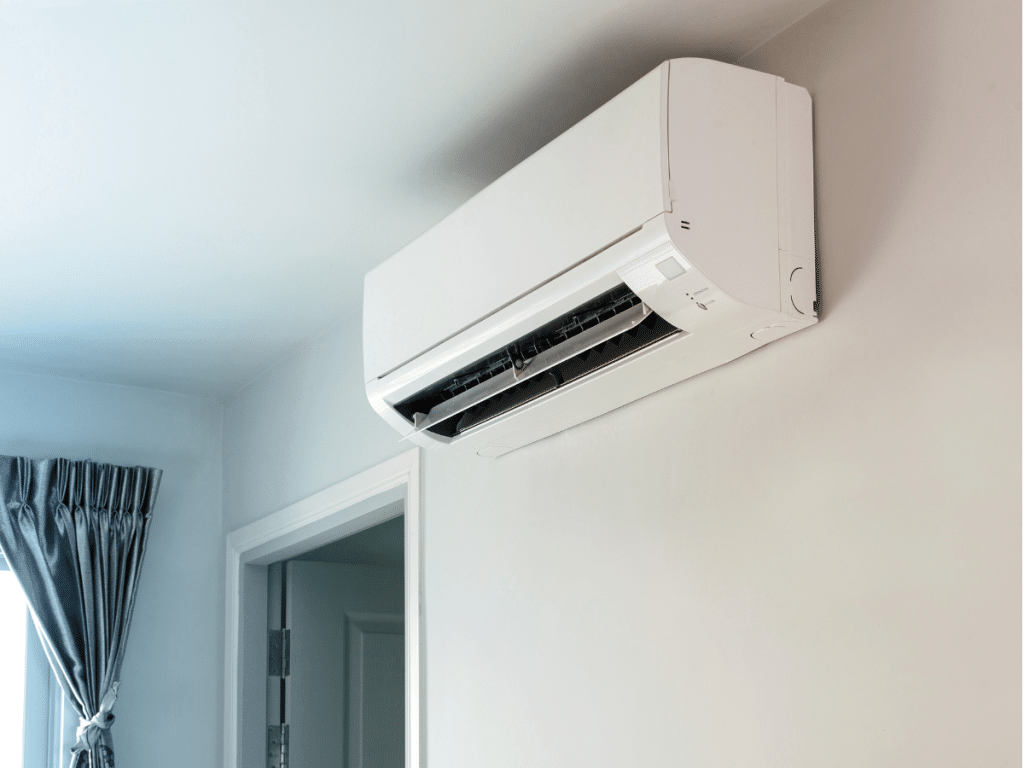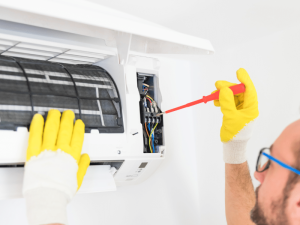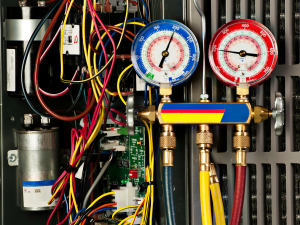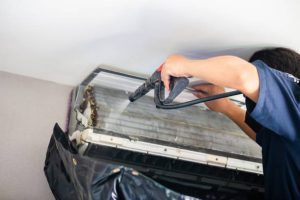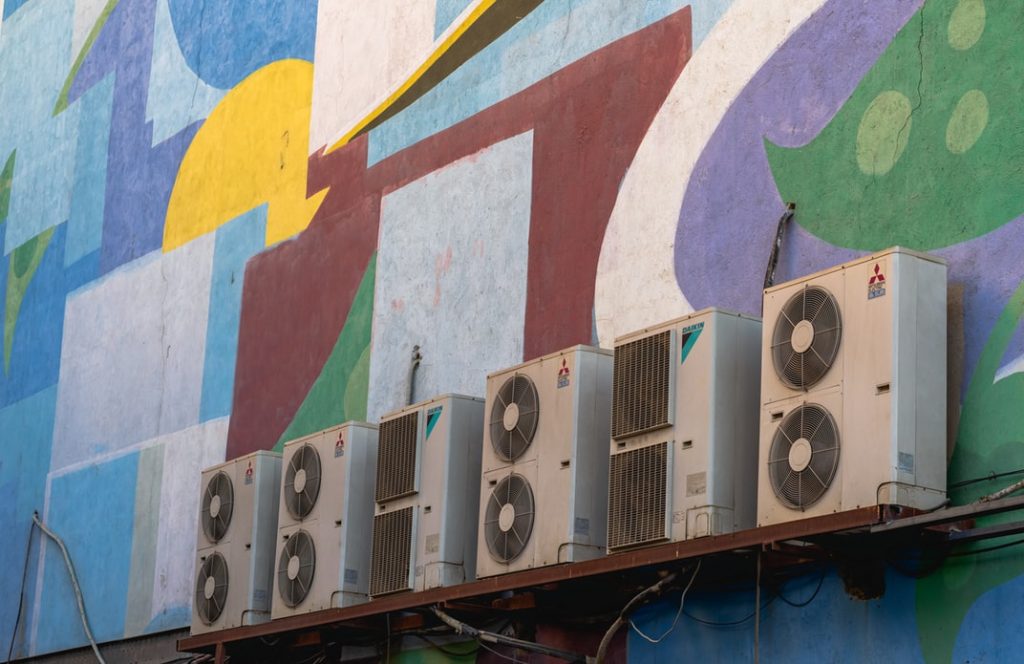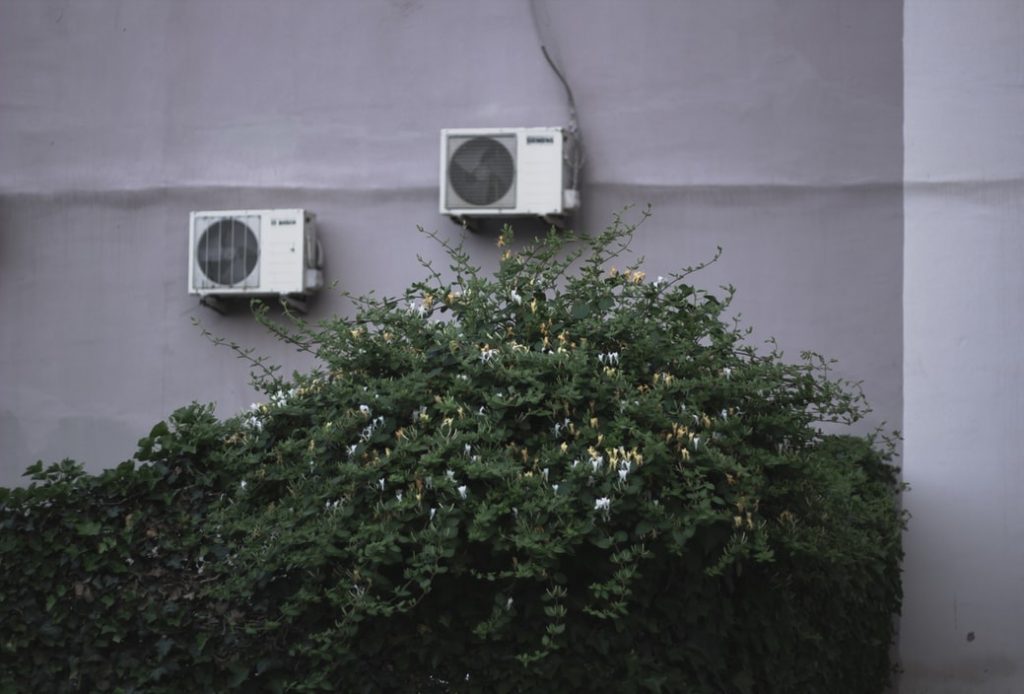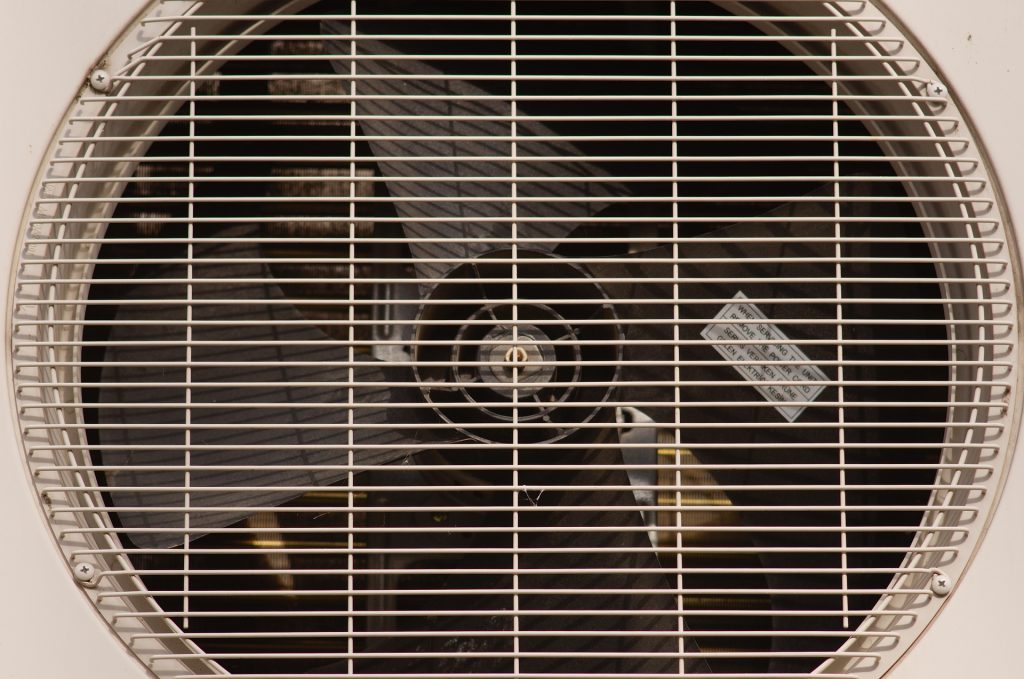If you’re dealing with rising energy costs or an aging air conditioner that doesn’t cool like it used to, you might be wondering—are new AC units actually more efficient than older ones? And more importantly, how much can you really save by upgrading?
We get it. Replacing your AC is a big investment, and you want to ensure it’s worth it. In this post, we’ll explain everything you need to know about new vs. old AC efficiency and why thousands of Phoenix homeowners are choosing to upgrade with American Home Water & Air.
What Does “Efficiency” Actually Mean in an Air Conditioner?
When we talk about AC efficiency, we’re referring to how much cooling you get per unit of energy used. The less energy your system needs to keep your home comfortable, the more efficient it is. This can significantly reduce energy consumption over time.
In technical terms, this is measured using the SEER rating, or Seasonal Energy Efficiency Ratio. The higher the SEER rating, the more efficient the unit. Older units may have SEER ratings as low as 8 or 10, while newer systems can reach SEER ratings of 15 to 26+.
Fun Fact: As of 2023, the minimum SEER rating required in Arizona for new systems is 15 SEER.
Old vs. New AC Units: Key Efficiency Differences
Let’s look at some of the most important ways new air conditioners outperform older models:
1. Smarter Components
Modern AC systems often include variable-speed compressors, which adjust output based on your home’s cooling needs. Older systems typically have only one or two settings—on or off—leading to more energy waste.
2. Eco-Friendly Refrigerants
Older ACs use R-22 (Freon), which is now phased out due to its environmental impact. Newer systems use R-410A or even more advanced, eco-friendly refrigerants that cool more efficiently and are safer for the environment.
3. Better Design & Insulation
Today’s AC units are built with tighter seals and improved airflow design. This reduces the amount of cool air lost through leaks and makes the system run more efficiently overall.
4. More Efficient System Types
Some homeowners also switch to ductless mini split systems for more targeted, room-by-room cooling. These systems are incredibly efficient, especially in homes without existing ductwork.
How Much Can a New AC Unit Save You?
The short answer? A lot.
According to the U.S. Department of Energy, homeowners can save between 20% and 40% on cooling costs by replacing an old air conditioner (AC) unit with a high-efficiency model.
Here’s an example:
| System Type | Estimated Annual Cooling Cost |
| 10 SEER (Old Unit) | $1,200+ |
| 16 SEER (New Unit) | $900 |
| 20+ SEER (Top-Tier) | $700 or less |
These savings add up year after year—especially in hot Phoenix summers when your AC is running non-stop.
If you’re unsure what unit would best suit your home, exploring the different types of air conditioners available today can help you make a smarter, long-term investment.
Energy-Saving Features in Newer AC Systems
Today’s air conditioners are designed with energy efficiency in mind. Here are a few standout features:
- Variable-Speed Compressors: Use only the energy needed to cool the space, rather than running full throttle all the time.
- Smart Thermostats: Let you program cooling schedules and control your system from your phone for maximum efficiency.
- Eco or Energy-Saving Modes: Built-in features that help you maintain comfort without increasing your utility bills.
- Advanced Filtration: New units can help improve indoor air quality, keeping your air cleaner and your system running more smoothly.
- ENERGY STAR Certification: Many new systems are ENERGY STAR rated, meaning they meet strict efficiency standards set by the EPA.
More Than Just Energy Savings: Why Homeowners Are Upgrading
Replacing an older Air Conditioner unit involves more than lower energy bills. Here’s what else you gain:
Lower Repair Costs
Older units tend to break down more often. A new system is covered by warranty and is less likely to need expensive repairs. This means fewer surprise service calls and more peace of mind during extreme weather.
Improved Home Comfort
New systems cool faster, distribute air more evenly, and reduce hot spots in your home. Advanced features, such as variable-speed motors and smart thermostats, also help maintain a consistent and comfortable indoor climate.
Higher Home Value
Buyers pay attention to HVAC systems. Upgrading to an efficient air conditioner can increase your home’s resale value and make it more attractive to future buyers. A modern, energy-efficient system is a strong selling point in a competitive market.
Environmentally Friendly
Reduced energy use and refrigerants with a lower global warming potential mean a smaller carbon footprint for your home. Choosing an eco-friendly unit also aligns with today’s green living trends and sustainability goals.
When Is It Time to Replace Your Old AC?
If you’re unsure whether your current unit is still worth keeping, here are some signs it might be time for a replacement:
- Your AC is 10–15 years old or more.
- Frequent and costly repairs.
- Inconsistent temperatures throughout your home.
- Higher-than-usual energy bills.
- It uses an outdated refrigerant (R-22).
Even if your unit is still technically running, a newer system can offer better performance, lower monthly costs, and greater peace of mind. And if you’re wondering how much it might cost, take a look at the average cost to replace heating and air conditioning so you can budget confidently.
Final Thoughts: Is a New AC Unit More Efficient?
Modern units are designed to save energy, improve comfort, and lower your monthly utility bills when it comes to new vs. old AC efficiency. If you’re tired of sweating through repairs and high bills, it might be time to make the switch.
At American Home Water & Air, we’ve helped thousands of Phoenix homeowners upgrade to energy-efficient air conditioning systems—and we’d love to help you, too.
Ready to get started?
Contact AHWA today to schedule your consultation and receive a personalized estimate for your new furnace installation. Our HVAC Company in Scottsdale, Phoenix & Gilbert is here to help you find the most cost-effective solution for your comfort and budget.


